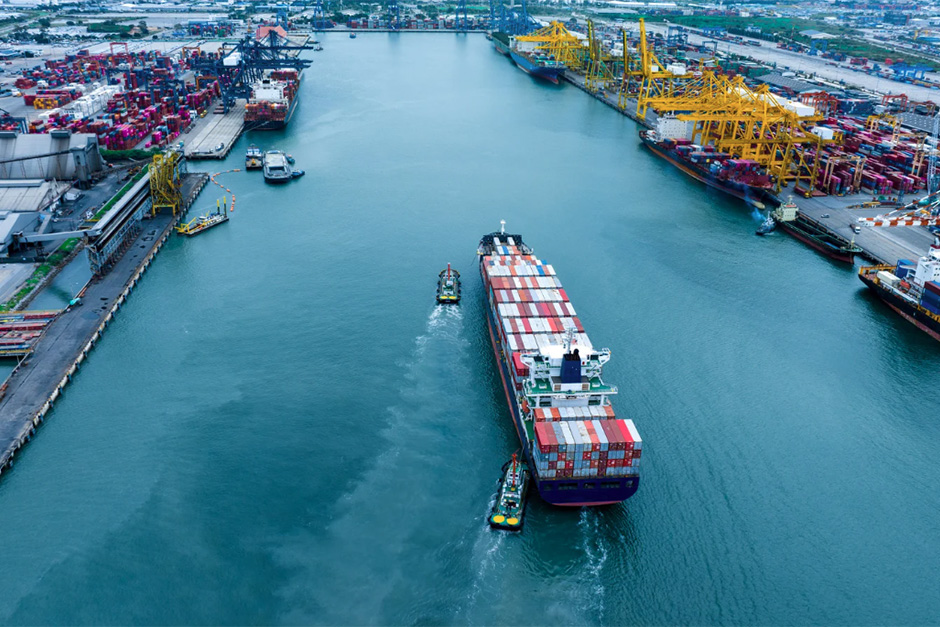
What Pilotage Authorities Should Expect from Dispatch Software
Dispatching and billing are the core operational challenges for every pilotage authority, yet many still rely on manual processes or outdated tools. As pilot schedules
Many small ports still rely on spreadsheets, paper forms, or homegrown databases to track activity and generate invoices. These setups are often:
Time-consuming for staff to manage.
Prone to omissions and errors, leading to lost revenue.
Difficult to scale or adjust as services change.
Vulnerable to turnover and undocumented knowledge.
And for ports with limited funding, enterprise software feels out of reach – too expensive, too complex, and too resource-intensive to maintain.
Modern billing doesn’t have to be over-engineered. Today’s flexible SaaS platforms can deliver:
Simple interfaces that mirror real-world workflows.
Accurate, automated charge calculations for dockage, lay-by, wharfage, service fees, and more.
Audit-ready invoicing that shortens billing cycles.
Clear reporting for boards, municipalities, and stakeholders.
Built-in, real-time analytics provide the visibility needed to manage operations and revenue with confidence.
Integration with standard accounting tools like Sage, QuickBooks, or Dynamics.
The key isn’t more software – it’s the right-sized software, designed for the workflows and budgets of small operations, but flexible enough to grow with you.
Missed Charges Are Adding Up: You can’t confidently say every service is captured and billed.
Invoicing Takes Too Long: Billing cycles are delayed by days or weeks.
Audit Preparation Is Stressful: Reconciling paper records eats up staff time and creates risk.
If these sound familiar, your port has likely reached the point where automation isn’t optional, it’s essential.
PortTrax was designed with small and mid-sized ports in mind. It delivers the automation and visibility needed to modernize billing, without the bloat of a full enterprise platform.
With PortTrax, you can:
Capture all billable port activity in one system.
Create and send accurate invoices faster.
Ensure compliance with audit-friendly reporting.
Reduce administrative burden for lean teams.
Scale only when you need to, and pay only for what you use.
Whether you manage a small public harbour or a seasonal terminal, PortTrax adapts to your environment and grows with you.
1. Why can’t spreadsheets handle small port billing?
They lack auditability, automation, and visibility. Spreadsheets become error-prone and inefficient as activity grows.
2. Is specialized software affordable for small ports?
Yes, PortTrax is modular and subscription-based, so you only pay for what you need.
3. How quickly can a small port implement PortTrax?
Most small ports can be live within weeks, not months, with minimal training needed.
4. Does PortTrax integrate with accounting software?
Yes, PortTrax connects with platforms like QuickBooks, Sage, Dynamics, and others to streamline financial processes.
5. What makes PortTrax better than enterprise systems?
It’s right-sized – offering the automation small ports need without unnecessary cost or complexity, with the ability to grow with your operations.
Small ports don’t need enterprise systems to modernize billing. They need right-sized solutions that improve accuracy, speed invoicing, and reduce administrative stress – all while fitting their budget and team capacity.
PortTrax gives small ports the ability to capture every charge, accelerate billing, and stay audit-ready – without the cost or overhead of enterprise systems.
Click Here to schedule a demo now or call us at 1-833-231-6182.

PortTrax makes billing faster, easier, and error-free – built for the needs (and budgets) of small ports.
Click Here to schedule a demo now or call us at 1-833-231-6182.

Dispatching and billing are the core operational challenges for every pilotage authority, yet many still rely on manual processes or outdated tools. As pilot schedules

For many ports, billing is a behind-the-scenes process – until it starts costing you real money. Relying on spreadsheets, paper forms, or outdated systems means

A Port Management Dashboard gives port authorities real-time insights into operations, helping them make faster, smarter decisions. With powerful data visualization tools, ports can improve efficiency, optimize logistics, and boost revenue tracking – all from a single interface.